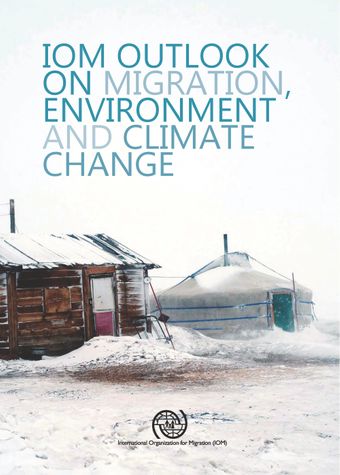A gender approach to environmental migration

- Author: International Organization for Migration
- Main Title: IOM outlook on migration, environment and climate change , pp 103-107
- Publication Date: June 2015
- DOI: https://doi.org/10.18356/accfbe6b-en
- Language: English
It is increasingly acknowledged that gender is one of the most important factors shaping the migratory experience. Migration is inherently gendered – women and men tend to have different migration patterns at every stage of the migration cycle (predeparture, transit, arrival, stay and return). The pressure to migrate, risk perception, priorities, strategies, destination choices, employment prospects, access to integration or reintegration activities also vary by gender. Experience shows that migration can lead to shifts in gender roles, contribute to changing oppressive gender relations, and provide new opportunities to improve women’s and men’s lives.
© United Nations
ISBN (PDF):
9789210572774
Book DOI:
https://doi.org/10.18356/9ba951ac-en
Related Subject(s):
Environment and Climate Change
Sustainable Development Goals:
-
From This Site
/content/books/9789210572774c018dcterms_title,dcterms_subject,pub_keyword-contentType:Journal -contentType:Contributor -contentType:Concept -contentType:Institution105
/content/books/9789210572774c018
dcterms_title,dcterms_subject,pub_keyword
-contentType:Journal -contentType:Contributor -contentType:Concept -contentType:Institution
10
5


